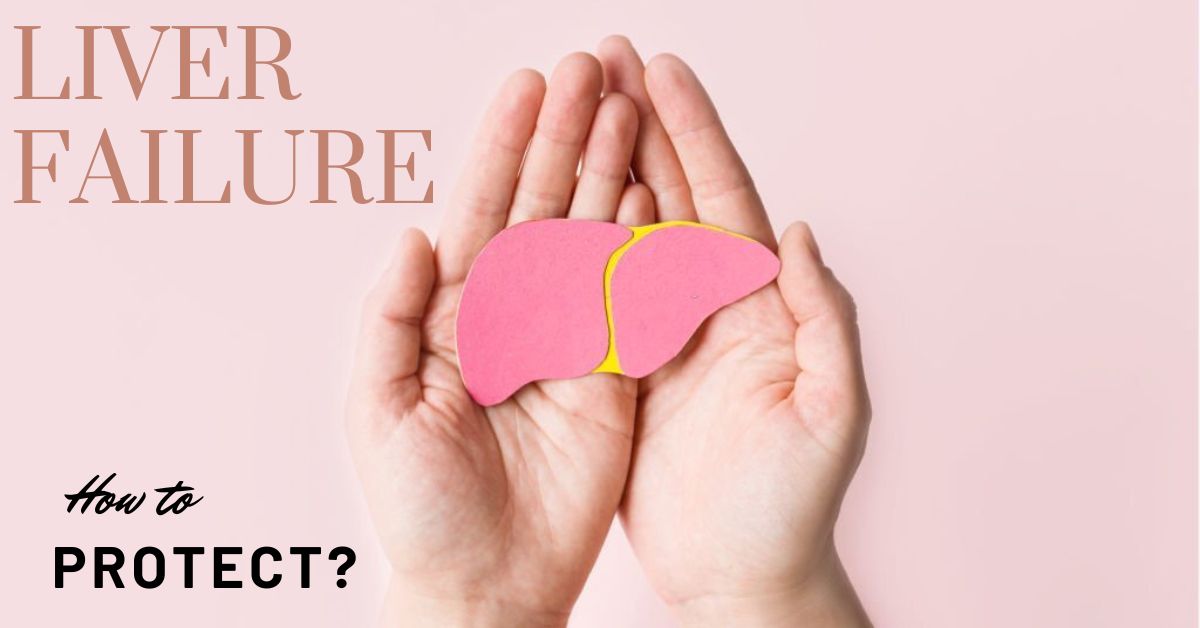The Failure of Liver Symptoms is a loss of liver function that occurs quickly – within days or weeks – usually in someone who does not have pre-existing liver disease. It is usually caused by the hepatitis virus and excessive alcohol and drug use. Liver failure, also called fulminant liver failure, can lead to serious complications, including bleeding and increased pressure in the brain. It is a medical emergency requiring hospitalization.
Depending on the cause, liver disease can sometimes be reversed with treatment. In many cases, however, a liver transplant is the only treatment. In this article, we are going to share a list of liver failure symptoms along with possible ways to reverse these symptoms and restore a healthy liver.
Liver Failure Symptoms
1: Jaundice – Yellow Eyes
Jaundice is a yellow discoloration of the skin, mucous membranes, or eyes. The yellow color comes from bilirubin, a byproduct of old red blood cells. Jaundice can be a symptom of liver health problems.
2: Pain in the Upper Right Abdomen
Right upper abdominal pain, or sharp pain under the ribcage, can be caused by gallstones, gallbladder inflammation, stomach ulcers, hepatitis, pancreatitis, lung disease, or liver damage. If you regularly experience pain in this area, see a doctor or health care professional as soon as possible. This can sometimes become a concerning condition for liver disease.
3: Ascites – A Swollen Belly
Ascites results from high pressure in the blood vessels of the liver (portal hypertension) and low levels of a protein called albumin. Diseases that can cause severe liver damage can lead to ascites. These include: Chronic hepatitis C or B.
4: Nausea
Nausea and upset stomach are common early symptoms of liver disease, but as your liver’s ability to remove toxins decreases, your digestive problems are likely to increase. Persistent nausea is a response to excess body waste and unexplained vomiting is often associated with liver problems.
5: Vomiting
As the liver loses its ability to function properly, you will likely experience loss of appetite, nausea, vomiting, and itchy skin. In later stages, symptoms may include jaundice, vomiting of blood, dark-colored stools, and fluid buildup in the legs (edema) and abdomen (ascites).
6: Illness, Fatigue and Malaise
Malaise and Fatigue are among the most common symptoms reported by patients with liver disease. While the underlying pathogenesis of fatigue in liver disease remains poorly defined, it appears to involve changes in central nerve transmission resulting from signals between the affected liver and the brain.
7: Disorientation and Mental Confusion
A cirrhotic-damaged liver cannot remove toxins from the blood as well as a healthy liver. These toxins can build up in the brain and cause disorientation, mental confusion, and difficulty concentrating. Over time, hepatic encephalopathy may progress to unresponsiveness or coma.
Read also: LIVER CLEANSE – The Importance of a Healthy Liver
8: Sleepiness
Sleep–wake disturbances are common in cirrhosis and are associated with quality of life. The most common abnormalities are insomnia (difficulty falling asleep and staying asleep, or non-restorative sleep), excessive daytime sleepiness, and sleep-wake reversals (circadian rhythm disturbances).
9: Musty Smell Breath
Hepatic jaundice occurs when your breath has a strong, pungent odor. This is a sign that your liver is having trouble filtering toxins, usually due to severe liver disease. This allows sulfuric substances to enter your bloodstream and travel to your lungs.
10: Tremors
A damaged liver allows toxins to build up in the blood. Toxins can cause confusion, slurred speech, and tremors. This is called hepatic encephalopathy. The liver may also stop making blood clotting factors and certain proteins in the blood.
How to Deal With Liver Failure Symptoms?
Liver disease and liver failure are usually treated by specialists called hepatologists. Treatment for liver failure varies depending on whether it is acute or chronic. For chronic liver failure, treatment includes changes to your diet and lifestyle, including:
- Avoid alcohol or drugs that can damage the liver.
- Minimize your intake of certain foods, including red meat, cheese, and eggs.
- Weight loss and management of metabolic risk factors, including high blood pressure and diabetes.
- Reduce salt intake in your diet (including not adding salt to food).
For acute (sudden) liver failure, treatment includes:
- Intravenous (IV) fluids to maintain blood pressure.
- Medicines such as laxatives or enemas to help remove toxins (toxins).
- Monitor your blood sugar. Your provider will give you glucose if your blood sugar is low.
- You may also receive a blood transfusion if you are bleeding too much, or a breathing tube to help you breathe.
Last Words
In this article we tried to cover up mostly common liver failure symptoms and what possible treatments you can do. But always consult with a professional healthcare or hepatologist if you feel any symptom mentioned above. At early stages, hepatologists recommend liver supplements. In this way, a trustworthy supplement store is necessary to find and Avenir Nutrition is the best option. For more details you may visit their online store.


